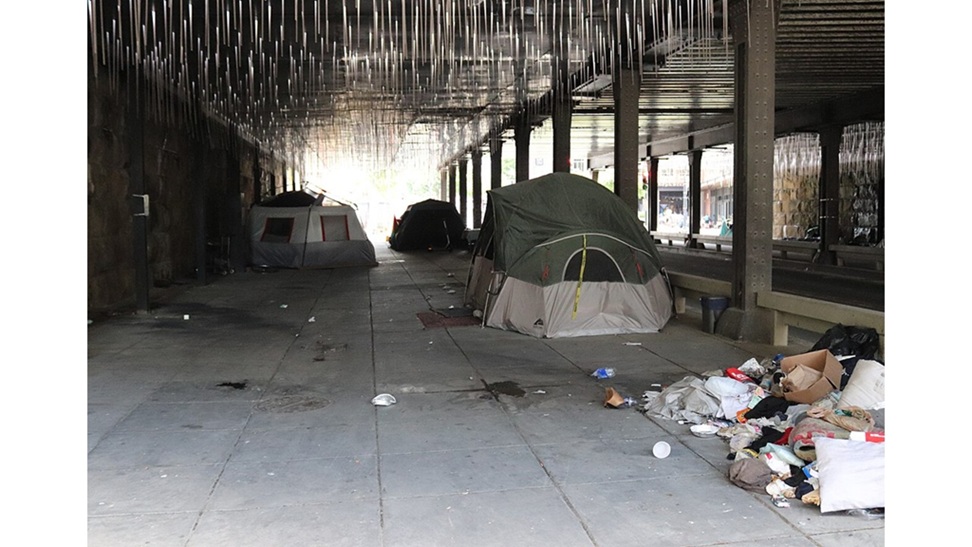.
The Capital
The capital looks like the setting of a zombie flick.
The city once had swagger; it was bright and rich and slick.
At night the neon lights shone over hustlers on the streets,
who’d sell you many things amidst the smells of skewered meats,
a whirl of midnight trades and early AM morning deals,
a swirl of contacts, contracts, in the hurl of squeaks and squeals.
But now it’s empty, ghostlike. You can hear your own foot steps.
The profits of the restaurants dropped 88%.
It’s a collapse of traffic; people on the walks have left.
Who cares about the drop in murders, drug deals, rapes, and theft?
.
.
Bruce Dale Wise is a poet and former English teacher currently residing in Texas.















Bruce, the deterioration of DC caused by “murders, drug deals, rapes, and theft” disturbs me to no end. The time has come to take back our nation’s Capital.
“The Capital” was not a poem purposefully written about Washington DC. It was an attempt to capture a dis-orienting setting, the kind I experienced when I lived in a foreign land. Though I was thinking of a specific capital, I was attempting to write a succinct city sketch, one with a distant tone, an over-arching view, and only the fewest and faintest of verbal c/l/ues, like that seen in Kafka’s “An Ancient Manuscript”.
I remember my son went to Washington DC to a leadership conference, when he was in high school; and while he was walking about from the bus depot, he was assaulted by three DC criminals. They demanded his money; so he took out his wallet, pulled out a twenty, and tossed it towards them. They immediately went after that single bill, and he was able to make his speedy getaway from them.
As for L10, including the phrase “murders, drug deals, rapes and theft” referring to the crime in Washington DC, this was a recommendation by Mr. Mantyk, to replace the original line: “It’s not bad luck. O, no, it’s years of hacking and neglect” with a rhymed couplet. The tennos is so linked to the ballad that it frequently elicits contributions from editors.
Your son was very savvy and lucky to get away safely from that situation. The subject matter of your poem could apply to any number (or perhaps the majority) of large cities. President Trump is demonstrating that it’s largely a matter of having the willpower to clean them up.
Ms. Corey is correct; this sketch could apply to many cities.
The original poem, drawing from economic chronicler Ken Cao, is tagged by one of my Chinese charichords: Aw 路边 (Curbside) Lee. Ghost cities in China, due to its demographic implosion, seemed in my mind to coalesce perfectly into a quick kafkaesque pic, in this particular case.
Kafka once noted that he needed “solitude for his writing; not ‘like a hermit’—that wouldn’t be enough—but like a dead man.”
“The Capital” is a tennos on Beijing, a city at this moment in total lockdown.
Having been born and raised in NYC myself, this poem resonates strongly with me. I’m no longer there, but I visit family from time to time, and it’s just not the big city I remember. Your poem here captures the differences I notice perfectly. Even the tone seems purposefully rushed, as if the bustle of the city overtook its own identity. The last two lines are my favorite; when the city isn’t even the city anymore, to whom do the “improvements” made even matter anymore? Thank you for sharing this.